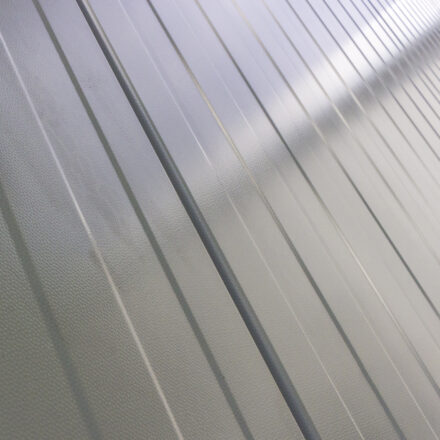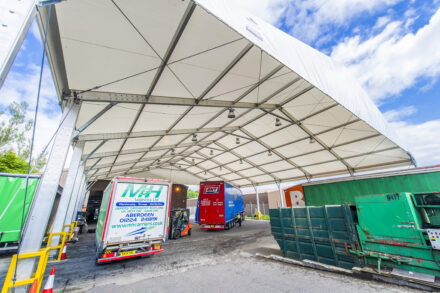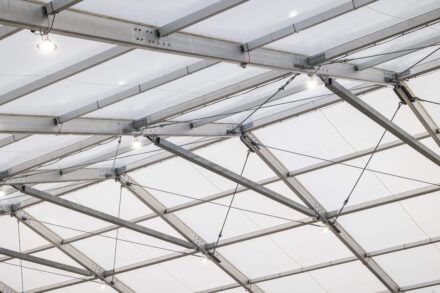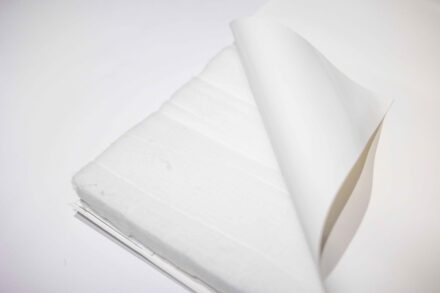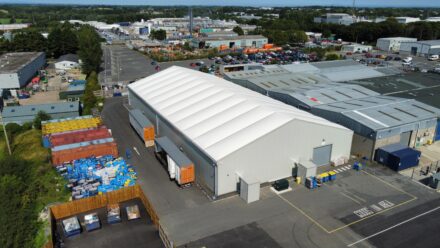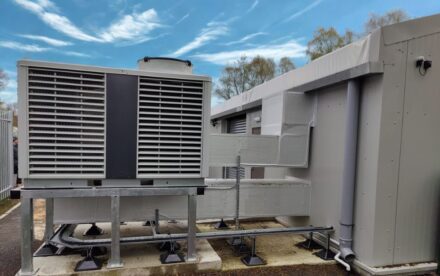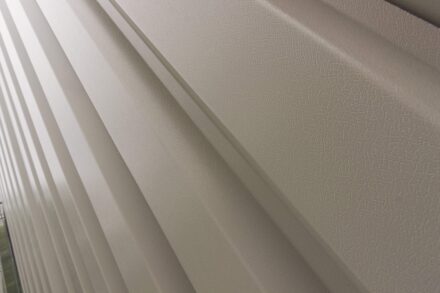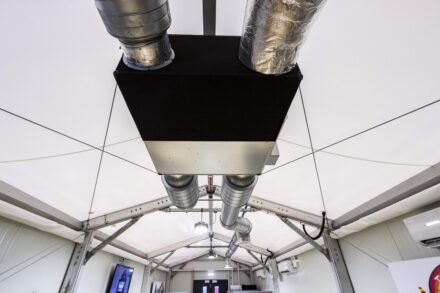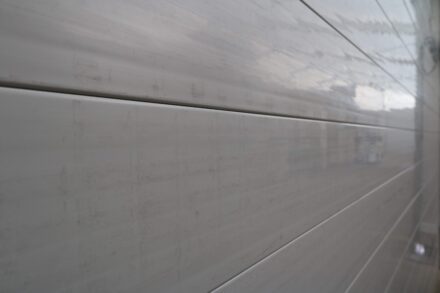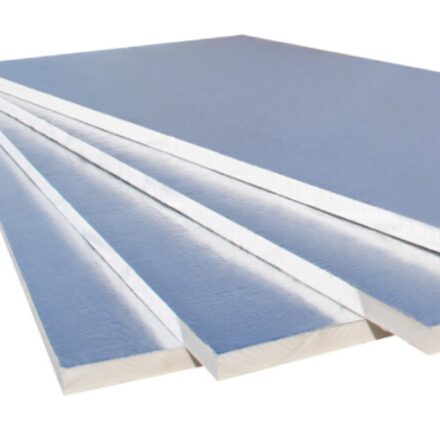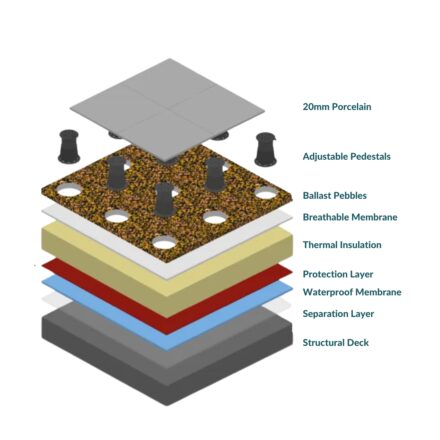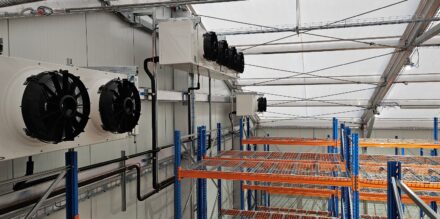Your space, insulated your way
At Spaciotempo, we offer a range of insulation and climate control options to ensure your temporary building performs to the highest standard, while keeping energy costs down and your people and products protected.
We’ll work closely with you to tailor the right solution for your needs, based on what’s most important to you. Whether that’s thermal efficiency, specialist storage or fire safety, we’ve got you covered.
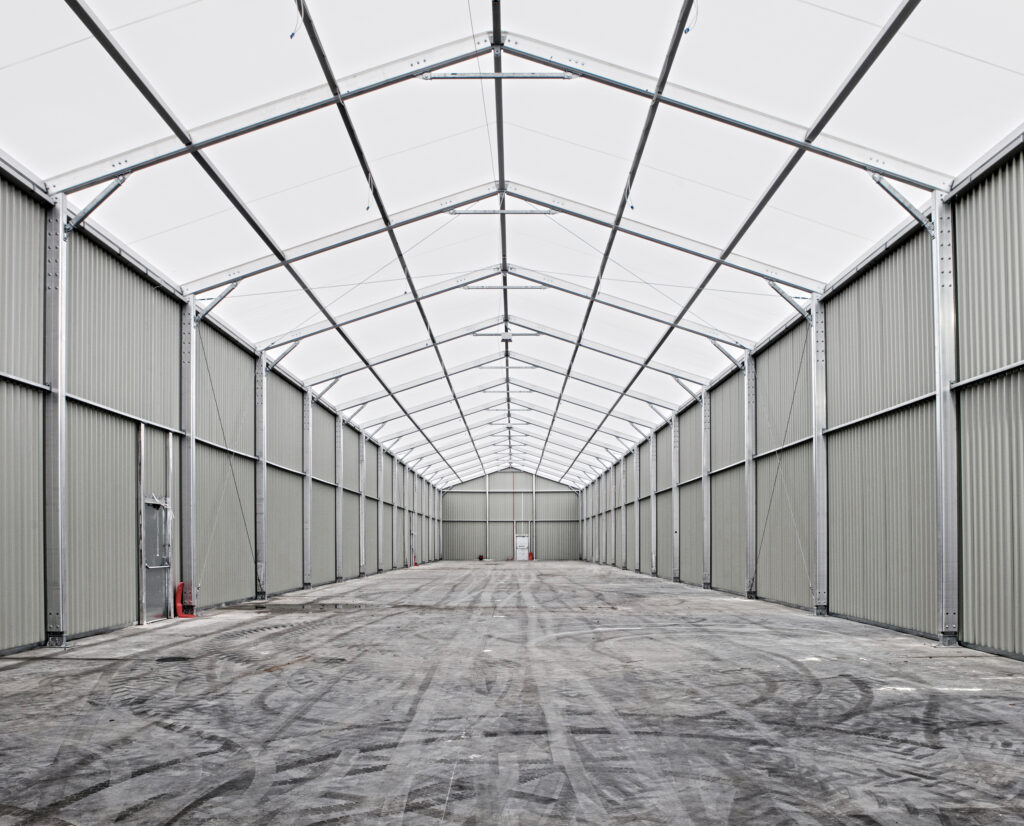
From simple storage to complex production facilities, the insulation in your temporary building is driven by how you plan to use it.
You might only need a non-insulated option for short-term or weather-protected storage. But if you're housing temperature-sensitive goods or staff, insulated wall and roof systems can deliver year-round comfort and energy efficiency.
Whether it’s single-skin steel, inflated roofs or PIR-filled sandwich panels, we’ll guide you to the right level of insulation for your needs.
See our helpful chart below to help visualise your options:
Temporary insulated buildings. Your sector covered.
(01)
Cold Storage
Maintain low temperatures for frozen or chilled goods.
Our insulated structures ensure consistent low temperatures for frozen or chilled storage. They help protect product quality, reduce energy use, and can be adapted for both short-term and long-term storage.
(02)
Food & Beverage
Ensure hygiene standards and preserve shelf life.
We provide insulated buildings that meet strict hygiene standards for food and beverage storage. Controlled environments help prevent contamination and extend shelf life, with options for easy-to-clean finishes and temperature control.
(03)
Manufacturing Environments
Keep workers comfortable and safe.
Insulated workspaces help maintain comfortable conditions year-round, protecting both employees and equipment. They also support stable manufacturing processes and improve overall productivity.
(04)
Pharmaceutical & Medical Goods
Meet strict storage regulations.
Our insulated solutions provide the precise temperature and air quality control needed for sensitive pharmaceutical and medical products, ensuring full compliance with regulatory requirements.
(05)
Sustainability Goals
Reduce energy use and carbon footprint.
Well-insulated buildings improve energy efficiency, lowering heating and cooling demands. This helps reduce your carbon footprint and supports your organisation’s environmental targets.
Temporary building insulation FAQs
What types of insulation are available for temporary buildings?
Common options include insulated sandwich panels for walls, thermal roof liners, inflated roof systems, and HVAC. Each offers different levels of thermal performance based on your needs and budget.
Do I need insulation in my temporary building?
Insulation is recommended if the building will be used by staff, house temperature-sensitive goods, or operate in extreme weather conditions. For short-term or non-sensitive storage, a non-insulated structure may be sufficient.
Can I insulate just the roof or just the walls?
Yes. Partial insulation — such as an insulated roof with standard wall panels — is a popular, cost-effective option for improving comfort without fully insulating the structure. We also offer wall less or part cladded industrial canopies.
How does insulation affect energy efficiency in temporary buildings?
Insulation helps maintain consistent internal temperatures, reducing the need for external heating or cooling. This can lower energy consumption and create a more comfortable working environment.
What’s the difference between insulated and non-insulated temporary buildings?
Insulated buildings offer enhanced thermal performance, ideal for year-round use or sensitive applications. Non-insulated options provide weather protection and durability at a lower cost, making them suitable for general industrial storage or processing.
